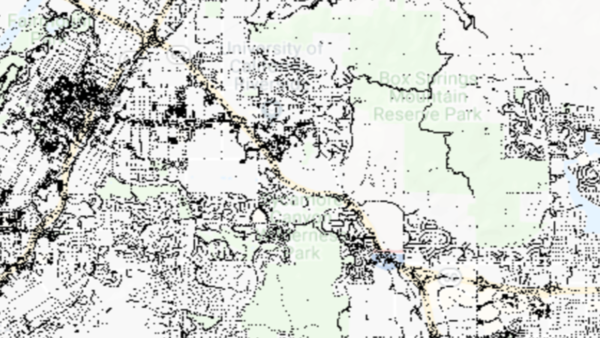


Data has become ubiquitous in everyday life, impacting every profession, from entry-level office workers to CEOs, from team coaches to general managers, from accountants to CFOs. Businesses now have data available to them at a scale that is historically unprecedented; harnessing this data for insight on what customers want provides them with a competitive advantage. Traditional companies (Ford, Walmart, General Electric, etc.) today pride themselves as being transformed to big-data businesses. Furthermore, data permeates all aspects of science, engineering, and other academic disciplines.
The field of Data Science has recently emerged as a new academic discipline studying data itself. Data Science lies at the intersection of Computer Science and Statistics. By creating a Data Science undergraduate degree we aim to educate the future data scientists and leaders in this field, by building knowledge bottom-up, covering both essential knowledge from Computer Science (in managing data) and Statistics (in analyzing data), and integrating this knowledge with applications to other domains and to real-life problems. The Data Science major provides a comprehensive program studying how data can be collected, transformed, analyzed, and used to solve problems across academic disciplines and applications.

Through its interdisciplinary nature, the Data Science major (B.S.) offers a great opportunity to serve as a pathway for professional careers in various areas. A distinguishing characteristic of our Data Science program in that its students will complete course sequences in other departments (e.g., economics, business, sociology, earth sciences, biology, bioinformatics, and astronomy) where they will learn how Data Science principles are applied in these domains.
Fueled by the explosion of data, Data Science jobs have proliferated and the demand for data scientists is extremely high; moreover, this demand is expected to be strong for years to come. A recent McKinsey report forecasted a need for hundreds of thousands of data scientists in the next decade. Three-fifths of the data science and analytics jobs are in the finance and insurance, professional services, and information technology sectors, but the manufacturing, health care, and retail sectors also are hiring significant numbers of data scientists. According to Glassdoor, a recruiting site, Data Scientist has been among the top jobs in the US for various years, attracting high salaries. We thus expect that the Data Science program will provide new opportunities and serve well the UCR community.
The B.S. in Data Science major is an intercollegiate major offered by the Department of Computer Science and Engineering (within the Bourns College of Engineering) and by the Department of Statistics (within the College of Natural and Agricultural Sciences). When students declare the major, they choose from which college they wish to have their degree awarded. Students whose degrees are awarded by the Bourns College of Engineering are advised in and have their records maintained by the BCOE Office of Students Academic Affairs; students whose degrees are awarded by the College of Natural and Agricultural Sciences are advised in and have their records maintained by the CNAS Undergraduate Academic Advising Center. Breadth requirements vary by college; and students must fulfill the breadth requirements of the college they choose.
Students choosing their BS in Data Science from BCOE should fulfill the requirements laid out in the BCOE Data Science course plan.
Students choosing their BS in Data Science from CNAS should fulfill the requirements laid out in the CNAS Data Science course plan.
The Data Science major offers a high quality program. Its design was greatly inspired by two recent reports about creating undergraduate Data Science programs from the National Academies of Sciences, Engineering and Medicine and the Park City Mathematics Institute (an NSF report endorsed by the Board of Directors of the American Statistical Association).